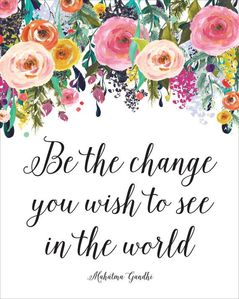|
7/26/2017 0 Comments Lessons learned Learning about epidemiology over time in the lectures was very interesting as it allowed us to think where this field could delve in the future. I also thought the clinical pictures were simple and easy ways to understand the pathway of disease in a community or environment. But my favorite activities were putting our adding and subtracting skills to the test to solve for prevalence and incidence of diseases from real statistics. I could only imagine real people behind these numbers and think that epidemiologists do a ton of work to help physicians pin point the true cause of poor health, disease, and death. On the excursions it's easy to see the past and present collide. Considering the history of London and the implications of the actions of notable figures, shows you that the subject is rather complex- not one sided. Take Edward Jenner as an example. After careful observation, he realized that he could inoculate a child with an injection of cowpox. In this way, the child could be immune to small pox. Since then, the doors have opened wide to improvements in health and communal disease control throughout the world. But it also shows that steps need to be taken to ensure the safety and health of those being used for testing. Although this lesson seemed subtle at the time, I now realize that it is, in fact, imperative to remember the ethics involved in developing and practicing modern medicine. As a health professional, I'd like to conduct research with my colleagues on dance as a therapy for, and possibly a preventative treatment for Alzheimer's. In effect, the stress and well being of the patients and their families involved would be first and foremost. Speaking of considering the interests of others, this program and studying abroad in general has made me far more self aware of how my actions affect those around me. One good/bad example is being late to events. Two minutes can seem like two hours if you're late, and it never benefits the group. On the other hand, asking questions that seem simple can be a good thing. Others in the class may be too shy to ask, but can benefit from the answer given. Before London, I thought I really knew what the word "adaptable" meant but this program refined my previous definition. In addition to changing oneself to new environments, I think adaptable also involves being willing to accept the change you go through due to formative experiences. This could mean becoming more mature or more reasonable or even more forgiving when others make mistakes. Being flexible or adaptable is necessary in the work place, especially in health care. Rules change, practices change, and people change. I'm so grateful to have had this opportunity and I'd do it again in a heartbeat!
0 Comments
7/18/2017 1 Comment Into the Future! Individuals have habits and populations have patterns. A doctor, PA, or RN can pick up on these habits and help the person improve their lifestyle or give them medication to lessen their symptoms. But a epidemiologist/ bounty hunter can find patterns. This is where preventative measures come into play. Before arriving in London, I knew the importance of public health in medicine, but now I’ve seen how one new practice can change health all over the globe. Case one, with John Snow, demonstrated this fact as he shifted London’s social and scientific paradigm from Medieval to modern. Now, miasma is seen as silly, but what other practices are we doing today that could be seen as silly in the future because our health professionals aren’t addressing the root problem. This is where critical thinking, census data, and dedicated bounty hunters work their magic. I’d like to work with epidemiologists in some capacity, but I don’t know exactly how because this class has made me consider a career focused on prevention rather than diagnosis. The tours have also shown me that one doesn’t have to be a health professional to change the way in which people are treated. Exhibit A is Thomas Coram. He was never a nurse, doctor, barber, etc. and showed no inclination to these fields. Yet, he spent over 17 years of his life beginning an important transition to a new London where children received the care they need that is sponsored by the wealthy, and later the government. Coram makes me consider health policy or administration where I could take the charge to improve health access and equity within my local community, or even on a national scale. Even though these men were not skilled in the same area, they both improved the health and well being of a large portion of Londoners because they identified the patterns around them. But even more than that, they set the stage for other nations around the world to follow- clean water and government sponsored health care for the poor improves the health of the population. |
 RSS Feed
RSS Feed
